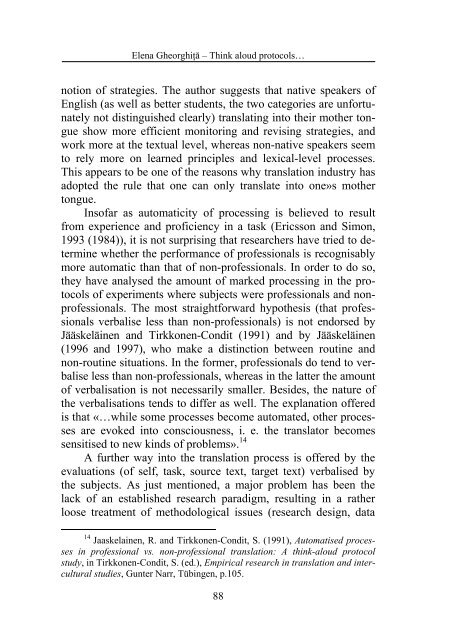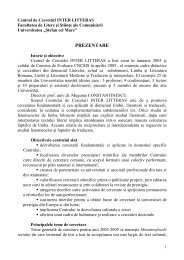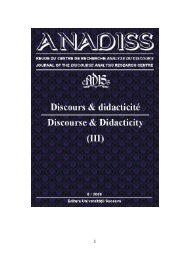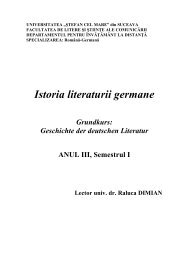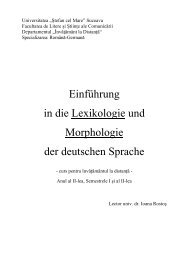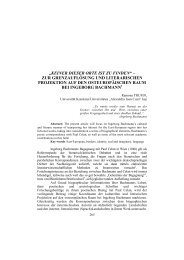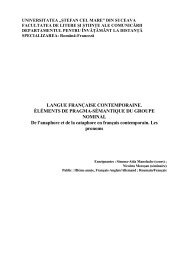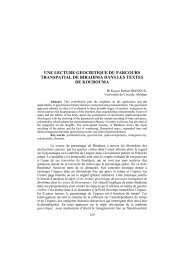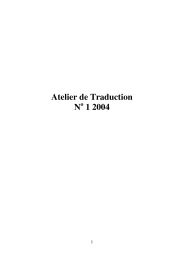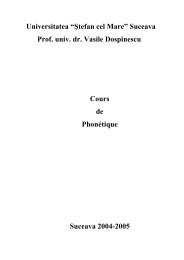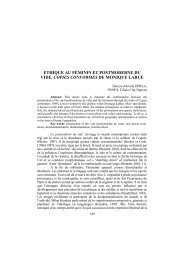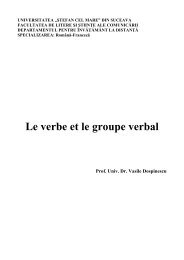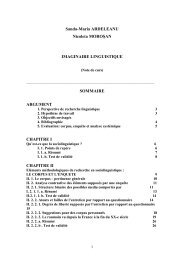Le discours de la francophonie
Le discours de la francophonie
Le discours de la francophonie
Create successful ePaper yourself
Turn your PDF publications into a flip-book with our unique Google optimized e-Paper software.
Elena Gheorghiţă – Think aloud protocols…notion of strategies. The author suggests that native speakers ofEnglish (as well as better stu<strong>de</strong>nts, the two categories are unfortunatelynot distinguished clearly) trans<strong>la</strong>ting into their mother tongueshow more efficient monitoring and revising strategies, andwork more at the textual level, whereas non-native speakers seemto rely more on learned principles and lexical-level processes.This appears to be one of the reasons why trans<strong>la</strong>tion industry hasadopted the rule that one can only trans<strong>la</strong>te into one»s mothertongue.Insofar as automaticity of processing is believed to resultfrom experience and proficiency in a task (Ericsson and Simon,1993 (1984)), it is not surprising that researchers have tried to <strong>de</strong>terminewhether the performance of professionals is recognisablymore automatic than that of non-professionals. In or<strong>de</strong>r to do so,they have analysed the amount of marked processing in the protocolsof experiments where subjects were professionals and nonprofessionals.The most straightforward hypothesis (that professionalsverbalise less than non-professionals) is not endorsed byJääskeläinen and Tirkkonen-Condit (1991) and by Jääskeläinen(1996 and 1997), who make a distinction between routine andnon-routine situations. In the former, professionals do tend to verbaliseless than non-professionals, whereas in the <strong>la</strong>tter the amountof verbalisation is not necessarily smaller. Besi<strong>de</strong>s, the nature ofthe verbalisations tends to differ as well. The exp<strong>la</strong>nation offeredis that «…while some processes become automated, other processesare evoked into consciousness, i. e. the trans<strong>la</strong>tor becomessensitised to new kinds of problems». 14A further way into the trans<strong>la</strong>tion process is offered by theevaluations (of self, task, source text, target text) verbalised bythe subjects. As just mentioned, a major problem has been the<strong>la</strong>ck of an established research paradigm, resulting in a ratherloose treatment of methodological issues (research <strong>de</strong>sign, data14 Jaaske<strong>la</strong>inen, R. and Tirkkonen-Condit, S. (1991), Automatised processesin professional vs. non-professional trans<strong>la</strong>tion: A think-aloud protocolstudy, in Tirkkonen-Condit, S. (ed.), Empirical research in trans<strong>la</strong>tion and interculturalstudies, Gunter Narr, Tübingen, p.105.88


